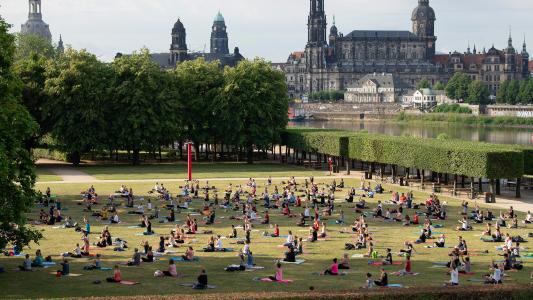Mental Health
Your “circadian rhythm peak” can affect your mental performance
What’s your chronotype? Knowing whether you’re a night owl or an early bird could help you do better on tests and even avoid scams.
These 2 types of exercise can improve brain health in your 80s, new study finds
Older people who regularly engage in aerobics and strength training perform better on cognitive tests.
How do researchers study the prevalence of mental illnesses?
Data on mental health is essential to understand the scale of mental illnesses. How do researchers collect this data, and is it reliable?
What is brown noise? Can this latest TikTok trend really help you sleep?
Brown noise, the better-known white noise, and even pink noise are all sonic hues. But do any of them actually work?
Human sleep patterns appear to change with the seasons
Researchers observed the sleep of 188 subjects to see if their slumbers would change in duration and structure along with the seasons.
Want to feel better? Science says to care for your dog
Research shows that caring for your pets can improve your well-being, and that the act of caring provided more improvements than mere companionship
Solitude, without loneliness, can have mental health benefits
Spending some time alone (chosen or not) can be a chance to hit the reset button on your mental health — for the better.
How do stimulants actually work to reduce ADHD symptoms?
Stimulant drugs are thought to alter the activity of key neuotransmitters, dopamine and noradrenaline, in the brains of people with ADHD.
Bad trips: Study examines the long-term adverse effects of psychedelic drugs
New research suggests that some users face long-term difficulties following psychedelic use, including emotional and social challenges.
Mindfulness: New age craze or science-backed solution?
Research shows mindfulness can be an effective wellness practice, yet the effect sizes found in studies tend to be moderate.









